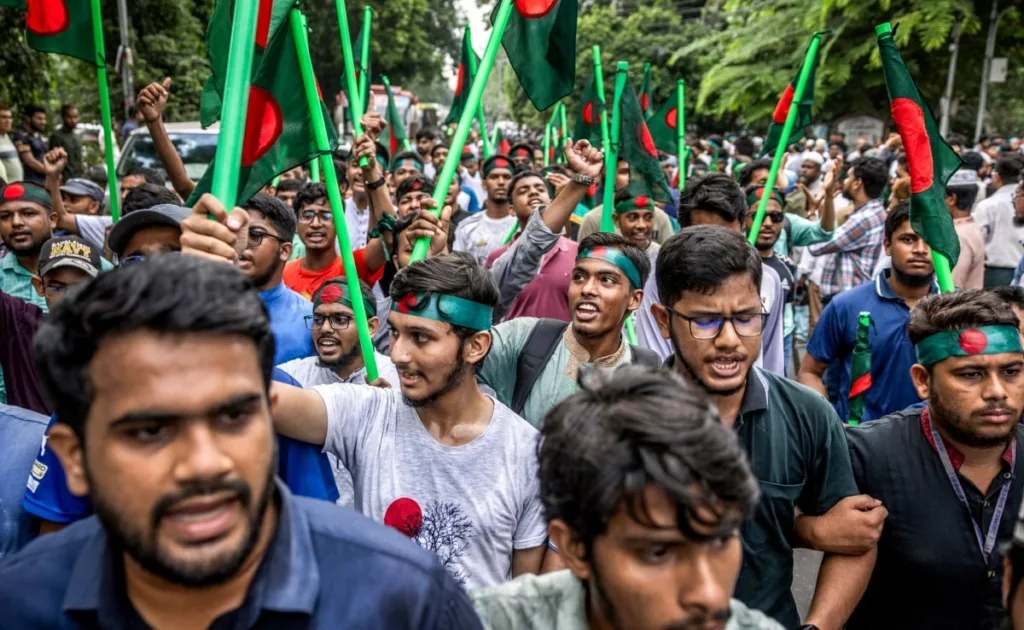Bangladesh is carrying out “fundamental, philosophical” reforms to bring back the country on the path of growth after living through years of entrenched corruption under the now ousted Awami League government led by former Prime Minister Sheikh Hasina, the country’s new adviser for social welfare told NDTV in an exclusive interview.
Sharmeen Murshid, who is one of the top advisers assisting Muhammad Yunus, the chief of the caretaker government, gave her insight into a wide range of critical issues that her country must tackle before it can finally leave the painful past firmly behind.
“The priority is to bring back law and order, and create conditions to hold proper, democratic elections, creating conditions of good governance and bringing normalcy,” Ms Murshid told NDTV.
She said one of the indicators of Bangladesh returning to normal is the rise in remittance collections this month, which signals confidence among people in Bangladesh’s ability to recover from political and economic turmoil.
“There is a reform agenda. In the past year, our understanding of our economy had been so hinged on misinformation. GDP (gross domestic product) rates were not truthful; we knew there was inflation, but never knew the rates. We had been seen dwindling foreign reserves… That was the situation we were living through. Very soon – it is not time yet to give you a large announcement – I can assure you that basic, fundamental changes are about to happen,” Ms Murshid said.
“This month, we had the highest collection of remittances in the last three years. And I see that as a confidence that people show towards this government, and also an indicator that we are returning to stable ground,” she added.
She credited the Nobel laureate Mr Yunus’ track record and his acceptance in the international community as a strong point for Bangladesh.
“I would like to urge the credibility of our chief adviser is also a major factor. The acceptability both internationally among governments and institutions and our people who are now geared and so motivated in rebuilding the country and the economy, I think we are on the right track. Of course, no one said it is going to be easy. I think we are returning on strong ground,” Ms Murshid told NDTV.
On Attacks On Minorities
Ms Murshid, while accepting there have been attacks on minorities in Bangladesh, denied large-scale targeting of minorities on religious grounds. Instead, she said, the violence reported from across Bangladesh was linked to political affiliation and not communal.
Lakhs of Hindus had taken to the streets in Bangladesh on August 11 to protest against attacks on the community after Ms Hasina resigned as Prime Minister and fled to India.
“The insecurity of vulnerable groups – call them minorities if you like – this government is making fundamental, philosophical changes. For example, we do not want to refer to anybody as minority. As professor Yunus said, we are one family. The violence that took place in specific categories have been because of the political turmoil. It was never because of communalism. This is where Indian media needs to come to Bangladesh,” Ms Murshid told NDTV.
“There are certain categories of communities that belong to certain political parties. The regime that has just been dethroned, a large portion of the so-called minorities, actually had loyalty towards that political party. Mind you, in this change and shift, the violence that Awami League perpetrated on its own people have caused certain backlash against the Awami League as a party and its cadre who have systematically killed people. You must see it in that frame of reference, not in the frame of minorities as Hindus,” the social welfare adviser said.
“We Are Not A Communal Nation”
“Even yesterday, our young people, people from the masjids have been protecting temples and communities. That doesn’t mean some lapses haven’t happened. I won’t say that. Some lapses have happened. But you must understand that we are not a communal nation. It is politics that use communalism to create communalism. We will rectify that, we will not allow that to happen,” she said.
“I would like to request the Indian audience, please be sensitive about this. Remember, in this region of South Asia, we have had a long history of communal struggles. Anything that happens in India affects us. If there is violence on Christians, Muslims, Manipuris in your country, then that has direct impact on security in my country. I think when you ask me about future policies, I think they must be much more compassionate, much more understanding, much more sensitive. We need to work towards that together,” Ms Murshid told NDTV.
Ms Hasina, 76, resigned as Bangladesh’s Prime Minister earlier this month following weeks of deadly protests that began as demonstrations by students against government job quotas, but surged into a movement demanding her resignation.
She had retained power for a fourth straight term in an election in January boycotted by the Bangladesh Nationalist Party (BNP), which had accused her Awami League of trying to legitimise sham elections.
Bangladesh’s flagging economy, once among the world’s fastest growing on the back of the country’s booming garments sector, has stagnated. Inflation hovers around 10 per cent and dollar reserves are shrinking.
After Ms Hasina left the country, the Anti-Discrimination Student Movement proposed the name of Mr Yunus to head the country.

